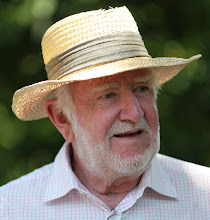The Festive Season is a time to relax and be refreshed. This year, much of my time was spent reading two books I had been given.
The first was the autobiography of my old friend, Kader Asmal. We first met when he was Minister of Water Affairs. When we moved to Cape Town, he was a neighbour, living just across the road. Over the years we became friends and political sparring partners. He would tease me about my ineffectual white liberalism, that had flapped its hands at the horrors of apartheid. I would tease him about the disaster called communism, and how it always corrupted its leaders.
So reading his autobiography was a delight. I had not realized his role in setting up the Truth and Reconciliation Commission, how the early films of the Nuremberg trials had coloured his life and driven him to a passion for human rights. I finally understood why he had been so interested when I shared with him my view of the greatest disaster of the 20th century – that 160 million people had been slain by the leaders of the nations to which the dead had sworn allegiance, a United Nations statistic. We debated at some length why the 21st century would be any different. My view was that modern communications made such crimes impossible to conceal, and could drive revolutions against oppressors, as the Arab Spring had demonstrated. Kader accused me of being the perpetual optimist.
It took the second book, The Fear – The Last Days of Robert Mugabe, by Peter Godwin, to show me that my optimism was misplaced. Godwin documents what he calls the politicide, the killing of thousands to instil the fear that keeps Mugabe in power. It is not merely Operation Gukurahundi, the slaughtering of some 20 000 Ndebele who had the temerity to support Joshua Nkomo’s ZAPU party. That happened nearly thirty years ago, ‘an unfortunate episode in history’. It is the ongoing use of the organs of the state to smash the opposition – literally.
Godwin writes of his curiosity, when visiting Zimbabwe soon after the 2008 elections which led to the sham power-sharing of the MDC in government, that he saw so many wheelbarrows with people riding in them – until he realized these were the injured, with shattered bones, discharged from the ZANU torture centres and being trundled to hospital.
Godwin reports on his visits to the hospitals. One patient’s story suffices. Questioned about his political affiliation, he admitted he had been the election director for the MDC in Harare. He was whipped; kicked in the face; stripped naked; while someone stood on his neck, beaten with branches until there was no skin on his back; and finally a truck was driven back and forth across his legs. Miraculously, he survived.
Schools were turned into torture centres; homes were torched and women and children incinerated. One woman was gang raped by seven youths, all of whom she recognized as children of her village. Godwin writes of a child trembling at the sight of a twin-cab pickup truck – it was in such a truck that the child last saw his mother, blindfolded and being tortured. In the city, the child was thrown from the truck; the mother’s charred body later discovered in the bush some 50km away. The final tortures described to Godwin are so obscene that the Marquis de Sade himself would have been appalled at their savagery.
But there are also stories of heroism in the face of such savagery. Morgan Tsvangirai was repeatedly arrested and tortured – and he is the leader of the MDC. He fled, then returned for another dose. Godwin describes the problems Tsvangirai faced on agreeing to join a multi-party government, when his party had clearly won the elections, but Mugabe refused to have the results released. One can only admire a leader who is prepared to stay in the face of the kind of threats he faces.
Another hero is Roy Bennett. Appointed a minister in the new government, he was warned that he would be seized as he appeared to be sworn in. He was duly arrested and thrown into a jail of medieval awfulness. But he is a Zimbabwean through and through – when he speaks Shona on the telephone, locals cannot tell that he is a white man. While in jail, the famous spirit medium ambuya Makopa sent him protective muti, and when he was finally released, she who normally never leaves her home was there to greet him.
But the nightmares of the torture of one human by another remain. Kader Asmal should have left an enduring legacy of absolute respect for human rights. Instead, his heirs in government support the megalomaniac to our north. The lessons of the 20th century are passing them by.


No comments:
Post a Comment